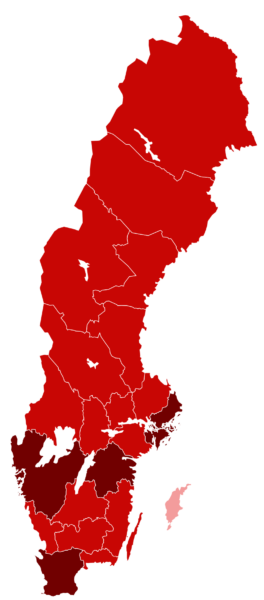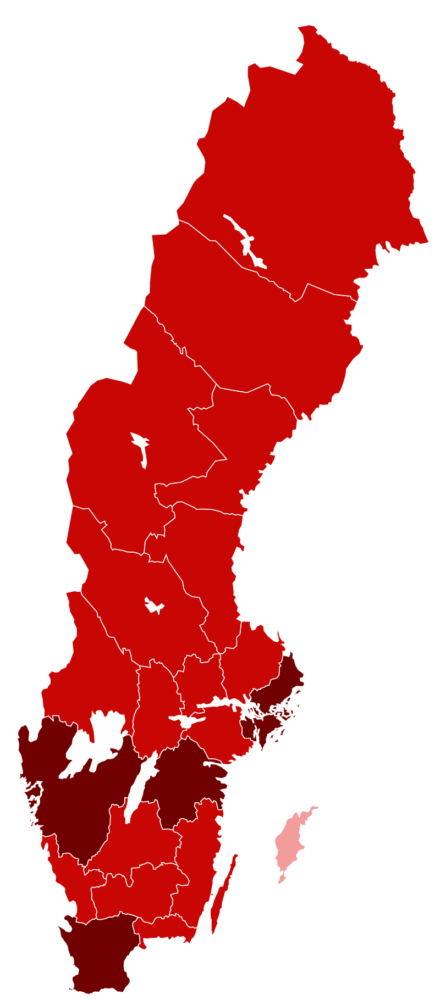It is the rich, big corporations and banks that should pay for the extraordinary efforts that are immediately needed to fight the coronavirus
Per Olsson (Editorial from Offensiv, weekly paper of Rättvisepartiet Socialisterna — ISA in Sweden)
The deadly spread of the coronavirus has shut down continents and, in an increasing number of countries, states of emergency have been declared.
Very quickly, before the end of the week, the situation in Sweden could be the same as in France where, for example, since Tuesday, it is only allowed to leave your home if you are going to work (though many workplaces are closed), the pharmacy or shopping for food.
Police patrols in France
For at least 15 days, these rules will apply and 100,000 police will patrol the streets to ensure compliance. The military will also be mobilized, starting in the hardest hit region of Alsace. France has also closed its borders.
“We are in a health war,” president Macron said the day before the new measures came into force, promising that no French company would be affected. On the other hand, however, no promise was made to withdraw the proposal to drastically reduce pensions, with the decision only being postponed.
The Swedish Social Democratic and Green government is doing the same.

Tax cuts for the rich in Sweden
The crisis measures are mainly aimed at companies, while at the same time right-wing policies remain in place. Like the French government, the Swedish one is not prepared to tear up even some of the many tax cuts that have been given to the rich which have contributed to the constant underfunding of health care and elderly care.
At the turn of the year, the government abolished the “wage tax”, which is paid by the highly-paid, most of whom are men, a decision that cost the Treasury just over SEK 6 billion (close to 600 million euro).
Reintroducing this tax and abolishing tax deductions for household work (state support to rich households employing others for cleaning etc) would give the state an extra income of more than SEK 11 billion (over one billion euro), which roughly corresponds to 20,000 new jobs in welfare. Increased corporation tax, a reintroduction of inheritance tax, gift and wealth taxes and a new property tax on the wealthy would allow for many more such jobs, which would enable increased staffing in the welfare sector.
Globally, just a modest increase in wealth tax for the richest 1% would be enough to fund 117 million jobs in health care, according to the aid organization, Oxfam.
It is the rich, big corporations and banks that should pay for the extraordinary efforts that are immediately needed to fight the coronavirus.
Closed borders
World governments’ responses to the corona epidemic have contained a devastating dose of nationalism and scapegoating. There are no coordinated, global efforts against a virus that knows no bounds.
This all goes completely contrary to what, for example, MSF (Doctors without borders) calls for — that governments in Europe, in addition to increasing the production of protective equipment, also should ensure that equipment can be sent to the worst hit regions. Closed borders instead risk stopping the flow of equipment and personnel to the most affected areas.
Furthermore, the lack of coordination and the chaos of the capitalist market prevents the restructuring that is necessary in order for all the resources of society to be mobilized to fight the spread of the virus.
Instead of massive welfare initiatives and green change, multi-billion efforts are directed at preserving current unsustainable industrial structures, including dependence on fossil fuels.
Lebanon, Iraq, Russia
The risk is also imminent that governing bodies will soon try to exploit the crisis and the acceptance that exists of the need to act, to consolidate right-wing politics and restrict democratic rights in more and for longer than medically necessary to fight the virus.
In Ecuador, for example, the right-wing government, citing “the economic crisis created by the coronavirus,” is now making a fresh attempt to enforce the austerity package halted by the mass movement last October. In Iraq and Lebanon, the elites have not hesitated to use the fear of the spread of the corona virus to make street demonstrations smaller.
It was also with reference to the threat posed by the coronavirus that Russia’s President Putin announced that he intends to rule until 2036.
Lower wages
Sweden does not seem to be an exception.
“The Coronavirus has now entered contract negotiations. Employers believe it is likely that pay rises will be lower“, the Construction Workers Union’s newspaper wrote on 13 March as a result of Mats Åkerlind, negotiating manager at the employers’ organization, claiming that ”it is likely” that pay rises will be lower this year due to the coronavirus.
That the contract negotiations continue as normal is something that only employers can benefit from. However, despite the coronavirus and without knowledge of what is coming next, the union leaders in industry hope to be able to sign agreements in two weeks. Instead, negotiations should be postponed — do not let employers exploit the crisis. The unions must prepare to struggle for jobs and wages.




